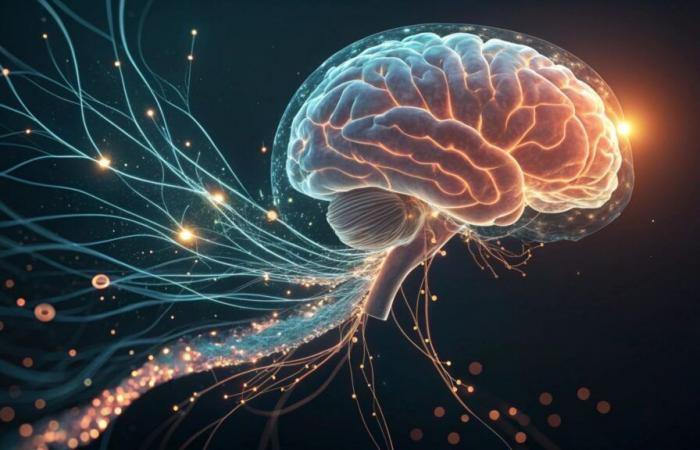The slowness of human thoughts is beyond all understanding. While our senses absorb on the order of a billion pieces of information every second, our mental processes are limited to a modest speed: only 10 binary pieces of information per second (10 bits). This surprising contrast opens the door to numerous questions about the real capabilities of our brain.
According to a study published in Neuron and conducted by researchers from California Institute of Technologyour brain would work much more slowly than our sensory receptors. The latter in fact treat a billion of bits per seconda hundred million times more than our thoughts. Scientists used methods inspired by theory information to reach these surprising conclusions.
Despite the ability of neurons to transmit massive amounts of data, only some information is retained by our conscious minds. This strange “speed limit” suggests that the brain filters sensory data to retain only the essentials. But why such slowness? The researchers point out that this constraint could be the fruit of evolution.
The first organisms with a nervous system used their cognitive abilities to navigate their environment and escape predators. This model, centered on a single “thought” at a time, would have been preserved throughout human evolution. Indeed, according to researchers, the brain behaves like a system navigating in a conceptual space, incapable of processing several flux of thoughts in parallel.
The implications are profound. If our thoughts are so slow, how can we explain human prowess at planning and problem-solving? One hypothesis put forward is that the brain optimizes these 10 bits for important situations, maximizing the quality of the decisions made.
This slowness contrasts sharply with the expectations created by new technologies. Brain-machine interfaces, often touted as tools to increase the speed of data processing, may not be as effective as expected. If the brain is limited to 10 bits per second, no interface will be able to overcome this natural barrier.
In addition, researchers have calculated that at this rate, all of the knowledge acquired during a man’s lifetime could fit on a simple USB key. A reality which puts into perspective the idea that our brain is a superordinateur.
Future research will need to decipher the exact mechanisms of this filtering. How does the brain decide which information to keep among the billions captured by our senses? This question remains open, but it could redefine our understanding of human consciousness.






